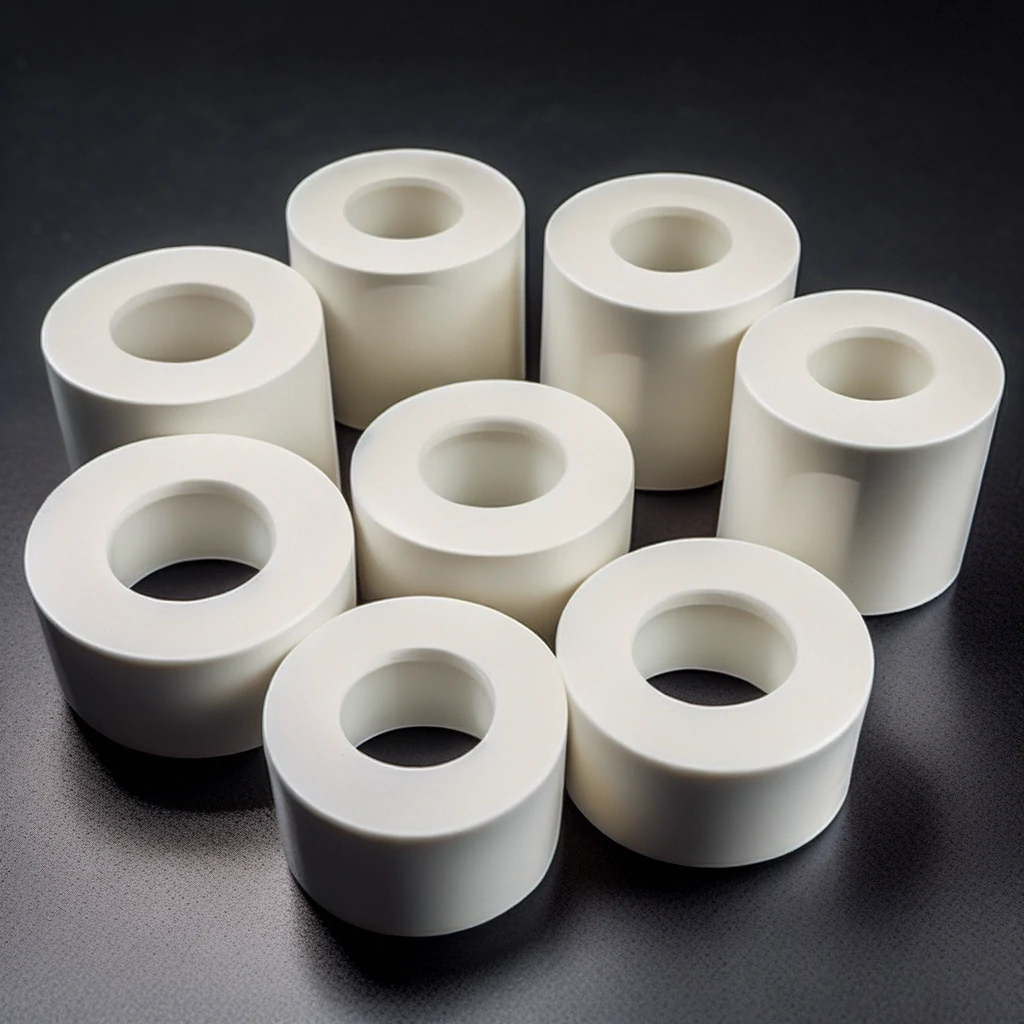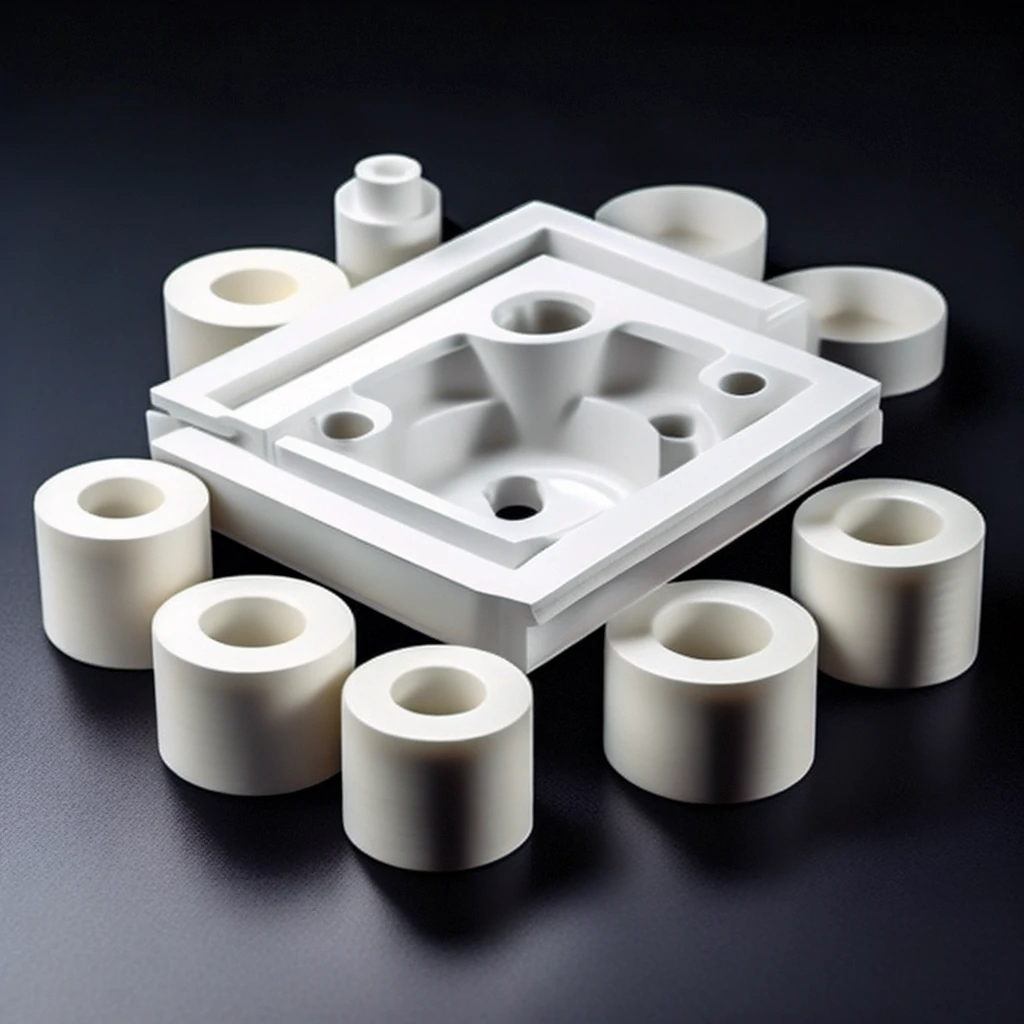Glass production is a complex process that demands precision, durability, and efficiency. Ceramic rollers have emerged as a game-changer, offering numerous advantages over traditional metal or rubber rollers. Let’s delve into the key benefits of utilizing ceramic rollers in glass production lines and how they can optimize your manufacturing process.
-
Exceptional Wear Resistance:
Ceramic rollers, made from advanced materials like silicon nitride (Si3N4) or silicon carbide (SiC), exhibit remarkable wear resistance properties. They can withstand the abrasive nature of glass materials, ensuring longevity and minimizing downtime due to roller replacements. This leads to significant cost savings and improved production efficiency. -
High-Temperature Stability:
Glass production involves exposure to extreme temperatures. Ceramic rollers excel in high-temperature environments, withstanding temperatures exceeding 1000°C. Their ability to maintain dimensional stability and mechanical strength ensures consistent performance and minimizes the risk of roller failure, even under demanding thermal conditions. -
Superior Surface Quality:
Ceramic rollers offer a smooth and non-porous surface, reducing friction and minimizing the risk of defects or surface imperfections on glass products. This results in enhanced product quality, reduced scrap rates, and improved yield, ultimately boosting overall production efficiency. -
Chemical Resistance:
Ceramic rollers are highly resistant to chemical corrosion, making them ideal for glass production processes involving aggressive chemicals. They can withstand exposure to acids, alkalis, and other corrosive substances, ensuring long-term reliability and minimizing maintenance requirements. -
Reduced Energy Consumption:
Due to their low coefficient of friction, ceramic rollers require less energy to operate compared to traditional metal or rubber rollers. This energy efficiency translates into cost savings and environmental benefits, further enhancing the sustainability of your glass production operations.


Table: Advantages of Ceramic Rollers in Glass Production Lines
| Advantages | Description |
|---|---|
| Exceptional Wear Resistance | Ceramic rollers withstand the abrasive nature of glass, ensuring longevity and minimizing downtime for replacements. |
| High-Temperature Stability | Ceramic rollers maintain dimensional stability and mechanical strength in extreme thermal conditions. |
| Superior Surface Quality | Ceramic rollers provide a smooth, non-porous surface, reducing friction and improving glass product quality. |
| Chemical Resistance | Ceramic rollers are highly resistant to chemical corrosion, offering durability in the presence of aggressive substances. |
| Reduced Energy Consumption | Ceramic rollers require less energy to operate, resulting in cost savings and environmental benefits. |
By incorporating ceramic rollers from Vhandy Ceramics into your glass production line, you can unlock a new level of efficiency and performance. With exceptional wear resistance, high-temperature stability, superior surface quality, chemical resistance, and reduced energy consumption, ceramic rollers offer significant advantages over traditional options. Trust Vhandy Ceramics for reliable ceramic solutions that will optimize your glass manufacturing process and enhance your overall productivity.
We welcome your inquiries and look forward to assisting you in selecting the most suitable ceramic rollers for your glass production line.Contact us today!
FAQ
Can you provide samples for me to test? How much does it cost?
We strive to provide ceramic samples that closely meet your requirements to the best of our abilities.
The samples are completely free, but you need to pay the freight.
For samples with unique shapes that require custom molds, we are open to discussing the mold cost in order to accommodate your specific needs.
We don’t know which material of ceramic we need, what should we do?
No worries! Please provide us with more details about your requirements, such as the intended use, desired properties, and any specific characteristics you're looking for.
With these information, our team can guide you in selecting the most suitable ceramic material for your needs.
We are concerned about the quality of the product we ordered.
We understand your worries and we maintain stringent quality control standards as following:
| Test Standard | Testing Dimension | Pass Rate | Standard Range |
|---|---|---|---|
| Appearance Inspection | Quantity and Severity of Defects | ≥ 97.3% | Determined by AQL standard |
| Dimensional Inspection | Size Accuracy and Consistency | ≥ 98.1% | Determined by ISO 9001 standard |
| Density Testing | Material Density | ≥ 97% | Determined by ASTM C20 standard |
| Hardness Testing | Surface Hardness | ≥ 98.2% | Determined by ISO 6508 standard |
| Flexural Strength Testing | Material Flexural Strength | ≥ 97.9% | Determined by ASTM C1161 standard |
| Thermal Shock Stability Testing | Material Thermal Shock Stability | ≥ 98.7% | Determined by ASTM C884 standard |
*Qualification standards higher than ISO standards
In addition to production line inspections, we also accept inspections from third-party organizations several times a month
While the occurrence of defects is extremely rare, it is an unavoidable possibility. If any quality issues arise, we take full responsibility and will expedite the reproduction process at cost price.
Our commitment is to ensure that our products meet the highest quality standards and promptly address any concerns to ensure customer satisfaction.
What is the processing accuracy of ceramics?
| Precision Requirement | Example | Unit |
|---|---|---|
| Surface Flatness | Ra ≤ 0.1 μm | μm |
| Dimensional Accuracy | Tolerance within tens of μm | μm |
| Aperture Precision | Diameter tolerance within a few hundred μm | μm |
| Surface Finish | Ra ≤ 0.2 μm | μm |
We maintain strict processing precision standards, ensuring that our products meet the majority of requirements using our standard manufacturing processes.
However, if you have a need for even higher precision products, please feel free to contact us.
We can discuss your specific requirements and explore customized solutions to meet your exacting standards.
What's your trade terms?
We prefer EXW, FOB and CIF as for terms.
T/T, West Union,30% deposit, 70% balance paid before delivery are greatly appreciated.
How long does your production take?
Q: What is the typical production lead time for Vhandy Ceramics?
A: The typical production lead time for Vhandy Ceramics is 15 to 20 days.
Q: Are there any situations where the actual delivery time may be longer?
A: Yes, in certain cases, such as shipping to distant countries, the actual delivery time may be extended beyond the standard range.
Q: What factors can contribute to longer delivery times?
A: Factors such as customs clearance procedures, transportation logistics, and international shipping arrangements can contribute to longer delivery times.
Q: How does Vhandy Ceramics handle potential delays?
A: Vhandy Ceramics strives to minimize potential delays and works closely with shipping partners to expedite the process whenever possible.
Q: Can I get an accurate delivery estimate for my order?
A: Yes, our customer service team can provide you with an estimated delivery time based on your specific order and location. They will also keep you informed throughout the production and shipping process.
Contact
*Your contact won’t be shared with 3rd party.
Shenyang Vhandy Technology Co., Ltd.
Room 401, D11 Block (Shenyang International Software Park), Shenyang, Liaoning, China
Phone/WeChat/WhatsApp
Tel
0086-24-31501218

